
Japanese Knife Stories
Discover the fascinating world of Japanese knives with our exciting blog! Delve into the rich history and traditions behind these renowned blades, learn about their unique features and uses, and explore the latest trends and innovations in the world of Japanese cutlery. Join us on a journey of discovery and appreciation for the art of Japanese knife-making.

Exciting News: We Acquired the History of Katana YouTube Channel!
Welcome to the famed History of Katana YouTube Channel—unlocking rare stories, epic blades, and what comes next. Curious? Dive into the reveal. Learn more.

OC Japan Fair Fall 2025 Recap (October 17 - 19 2025)
We were thrilled to return to OC Japan Fair 2025—the biggest Japan-themed event in SoCal! Here is a recap video from the event!

Japanese Single Bevel Knife vs Thai Cleaver
Uncover the legacy behind Japan and Thai`s finest blades—crafted with centuries‑old secrets and passion. Discover each unique journey... Read on to start your journey!

Japanese Single Bevel Knife vs. Chinese Cleaver (Cai Dao) – 5 Battles You Don’t Want to Miss
Japanese Single Bevel vs. Chinese Cai Dao: Which blade reigns supreme? We compare sharpness, strength, and style to help you pick the right kitchen companion.
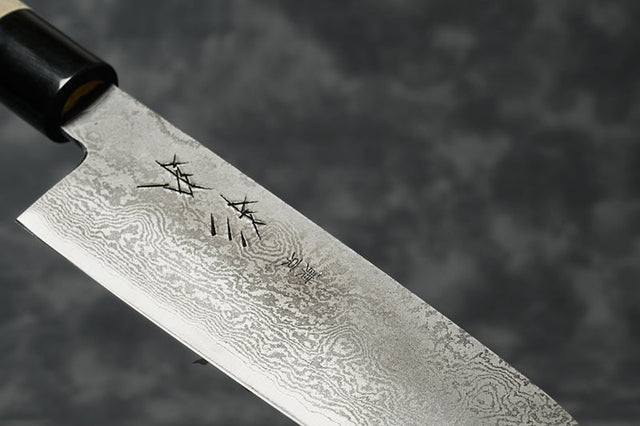
Everything You Need to Know about Damascus Japanese Knives
Discover the secrets of Japanese Damascus knives! Uncover their rich history, unique features, and the latest trends. Click to explore the art of Japanese knife-making!

Japanese Knife Co. to introduces Premium Japanese Scissors
The Japanese Knife Co. introduces a new addition to their family of products: Premium Japanese Scissors. Emphasizing the history and craftsmanship of Japanese knife-making, the article highlights how these techniques...

Is Single Bevel Only Japanese?
Single bevel knives, known for unmatched precision, aren't exclusive to Japanese blades but exemplify their craftsmanship and edge superiority globally.
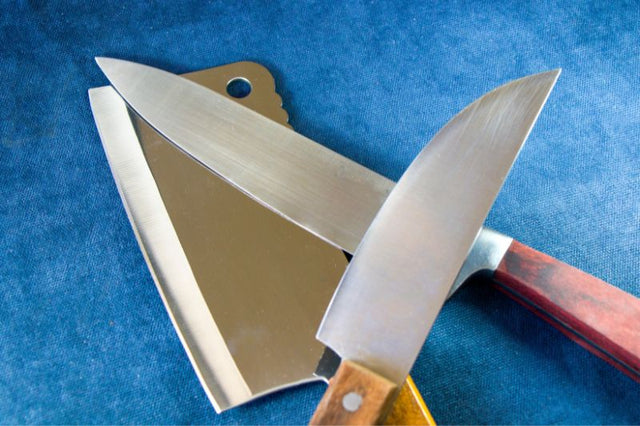
How to Spot a Fake Japanese Knife
With the help of our in-depth tutorial, learn how to identify fake Japanese knives. Make sure you receive the genuine article and avoid being fooled by imitations.
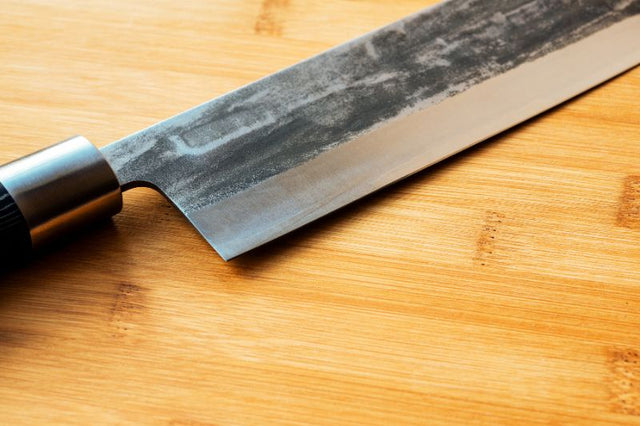
How to Choose Your First Japanese Knife
Learn about the craft of Japanese knifemaking and find your ideal fit. You can browse the many types and features with the help of our tutorial.
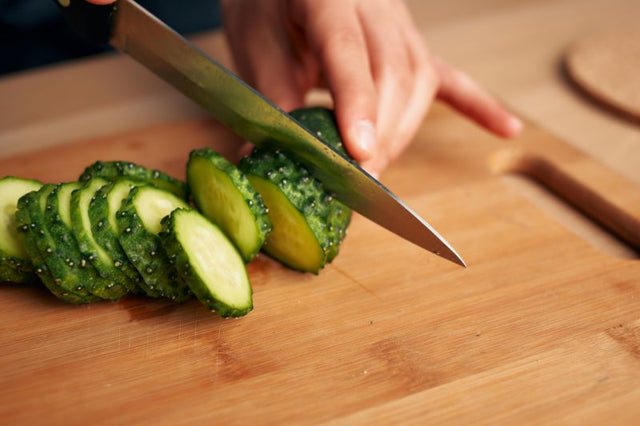
5 Best Japanese Chef Knives for Plant-Based and Vegetarian Kitchens: Featuring Opinions from real-life experts on Japanese knife
Have you ever had a Chef vs. Vegetable moment in the kitchen? I certainly have. It's that unforgettable moment when your knife decides it wants to play "Hide and Seek"...
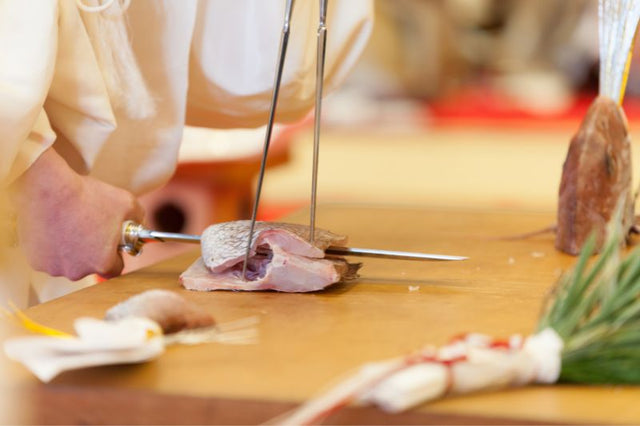
Houchoushiki (庖丁式) - A Ceremony that Celebrates the Art of Japanese Knives
The Houchoushiki ceremony is a beautiful celebration of Japan's knife culture. Originating from Edo period, it honors the skill of knife-making and supports the maintenance of such classic traditions.

10 Things You-Might-Not-Know Facts about Japanese Kitchen Knives
Discover the intricacies of Japanese kitchen knives, from their unique blade shapes to their ergonomic handles. These knives are a must-have for any serious cook.
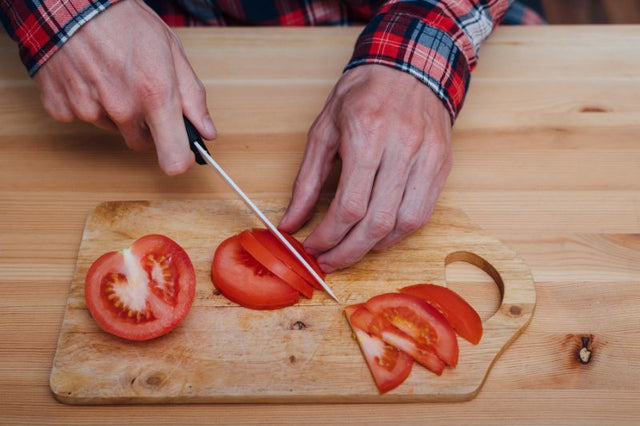
What Kind of Knife Material is Best for Acidic Vegetables?
For cutting vegetables, a Japanese nakiri knife is the best choice. With its thin, sharp blade and double-beveled edge, it offers precision and accuracy.
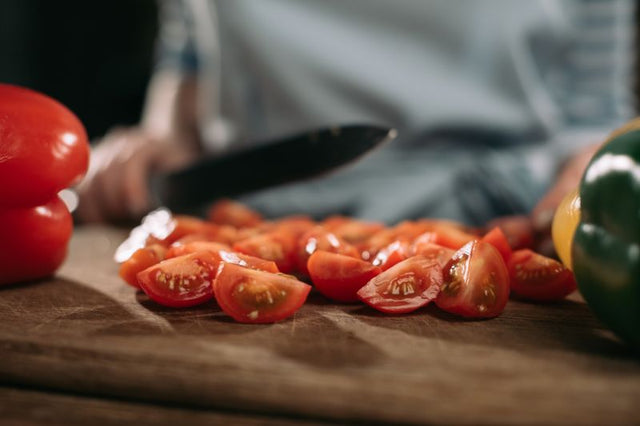
Cut Styles using Japanese Knives
Japanese knives have a wide range of cutting styles and techniques, each suited to specific types of food and cutting tasks. In addition, they are typically made with harder and...
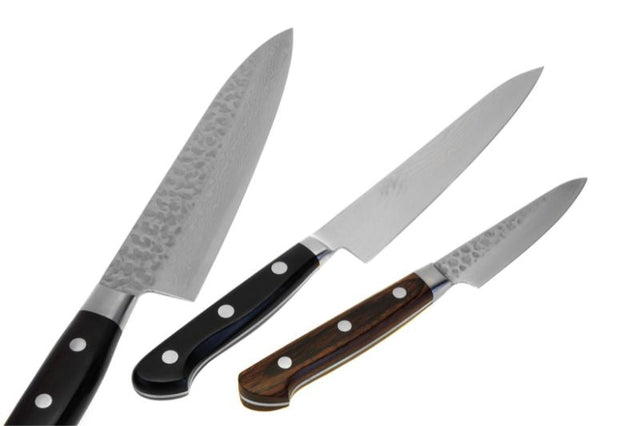
Nakiri, Deba, and Gyuto - Can they cut "soft" bones?
Cut soft bones with Nakiri, Deba, and Gyuto knives. Discover the craftsmanship and perfection that goes into making exquisite Japanese blades. Improve your knowledge right now!
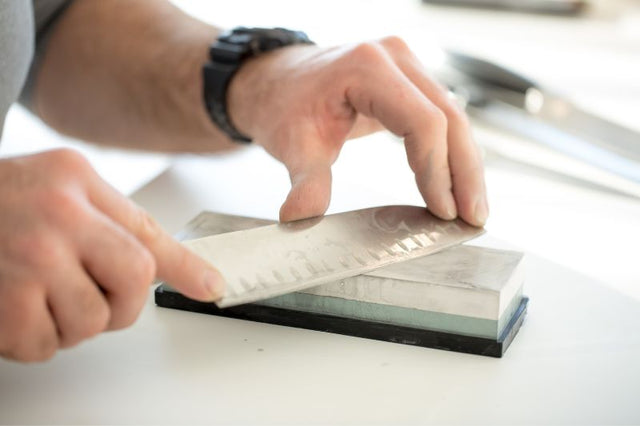
How Often Should I Bring a Knife for Sharpening
Get the best sharpening frequency for your knives. Professional advice on how to maintain your blades sharp and effective. Further information is available by clicking here.
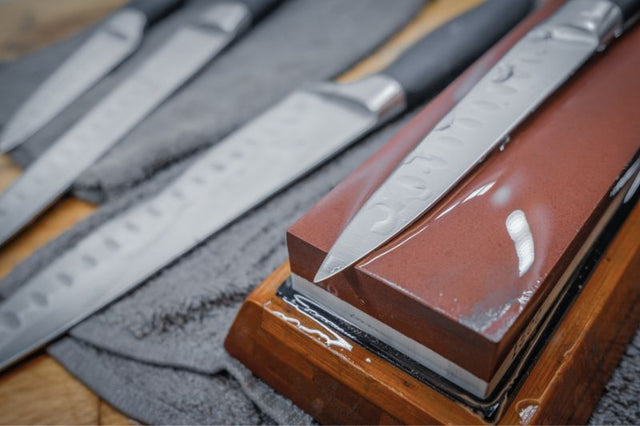
Hand Sharpening Vs. Machine Sharpening: How to (and How Not to) Sharpen Your Knife
Learn how to sharpen your knives properly. Discover the skill of hand sharpening as well as the benefits and drawbacks of utilizing machinery to get a razor-sharp edge.

About Mr. Ueta’s Injury and His Work
Read the inspiring story of Mr. Ueta, a Japanese knife craftsman who overcame a life-changing injury and continues to create exquisite knives today.
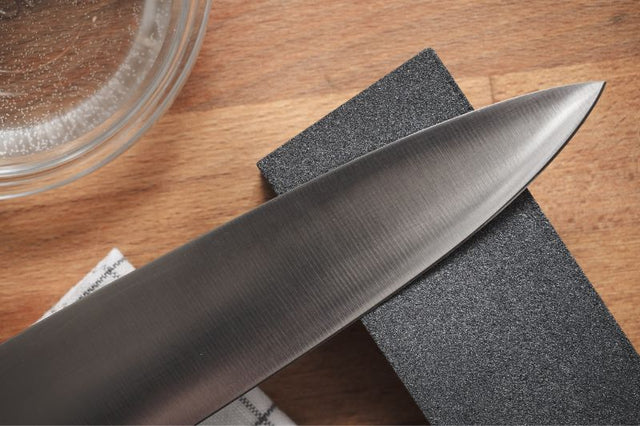
Corrosion vs. Oxidation
Delve into the realm of Japanese knives as we unravel the battle between corrosion and oxidation. Explore effective blade care techniques to preserve their performance and extend their lifespan. Protect...

10 Reasons to Buy a Japanese Knife
Find out why Japanese knives are a chef's best friend! Learn the top 10 reasons why they're a must-have in any kitchen, from their unparalleled sharpness to their beautiful craftsmanship.
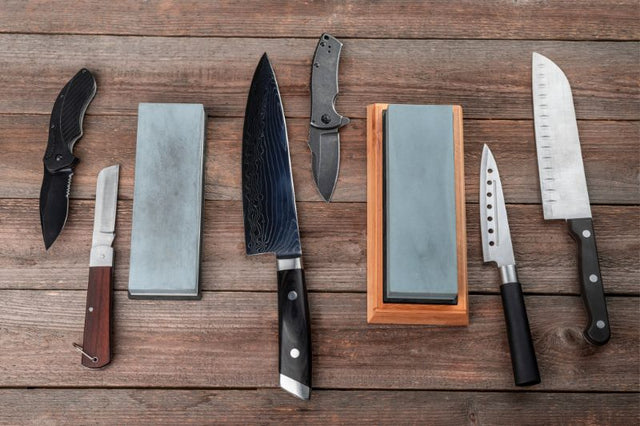
Choosing Sharpening Stones for Japanese Knives
Discover the secrets to sharpening Japanese knives like a pro! Learn how to choose the right sharpening stones and achieve razor-sharp edges.

10 Benefits of Buying a Japanese Knife
Unleash your inner chef with a Japanese knife. Discover 10 benefits, from razor-sharp precision to stunning craftsmanship. Upgrade your culinary game now.
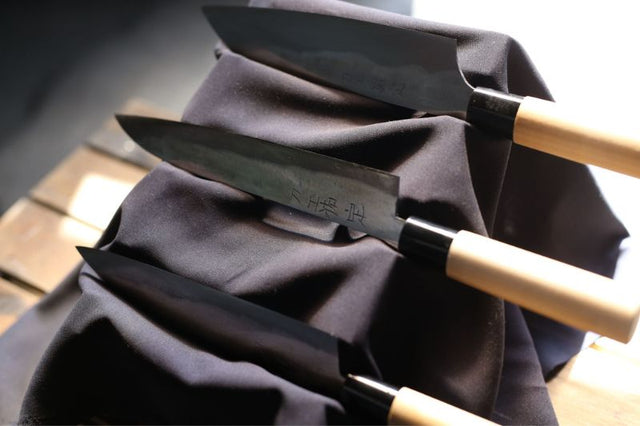
List of Ideas to Engrave On a Knife
Looking for unique ways to personalize your Japanese knife? Check out our list of creative ideas to engrave on your prized kitchen tool. Read now!

The Anatomy of a Knife – Everything You Need to Know about Parts of a Japanese Knife
Discover the anatomy of a Japanese knife and gain a deeper understanding of its construction, components, and how they affect its performance. Read more!

Difference Between Sharpener and Whetstone
Sharpening your knives at home? Learn the crucial difference between a sharpener and a whetstone to ensure your knives stay razor sharp. Read now!
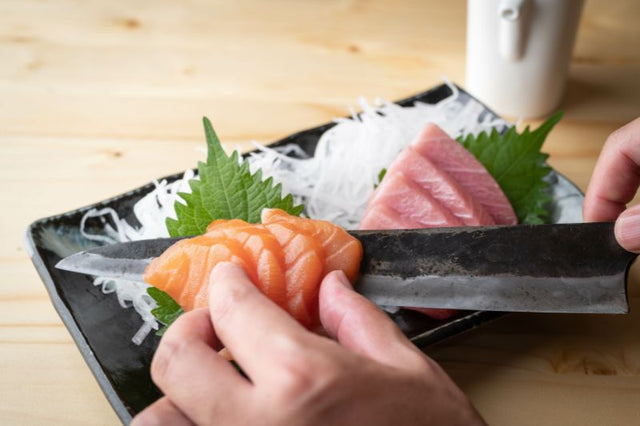
Knives for Sushi at Home
Take your sushi-making game to the next level with our guide to the best Japanese knives for sushi at home. Read now and elevate your skills!

Why are Japanese Knives More Expensive?
Discover the secrets behind the high price tag of Japanese knives, and why investing in one is worth every penny. Read more now!
Download
Get Free Bonus Book
















